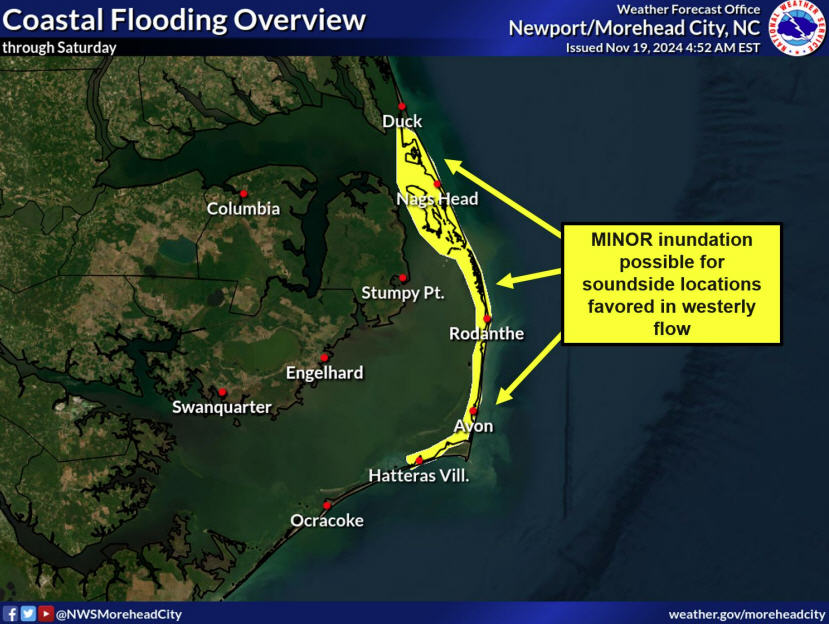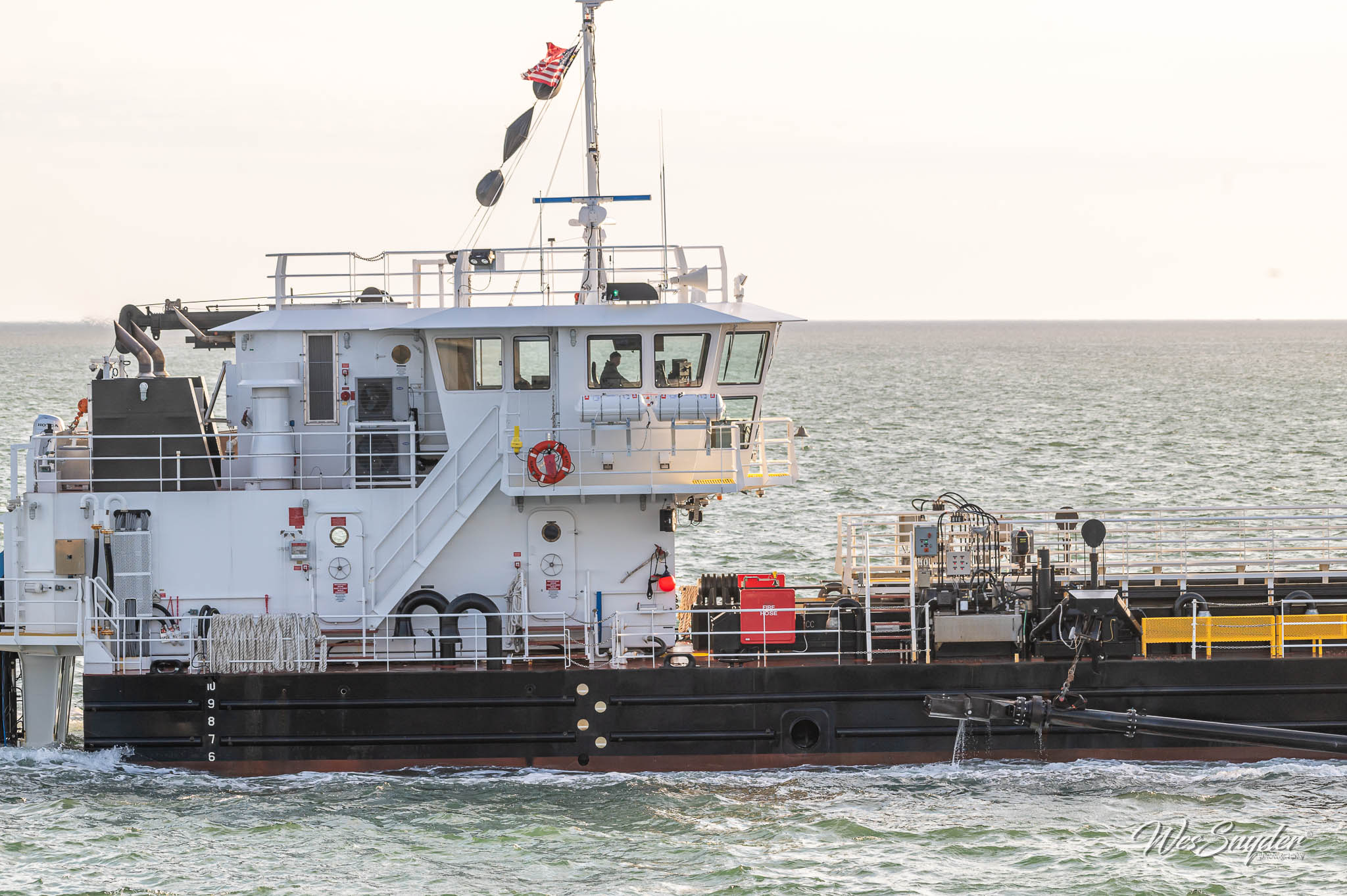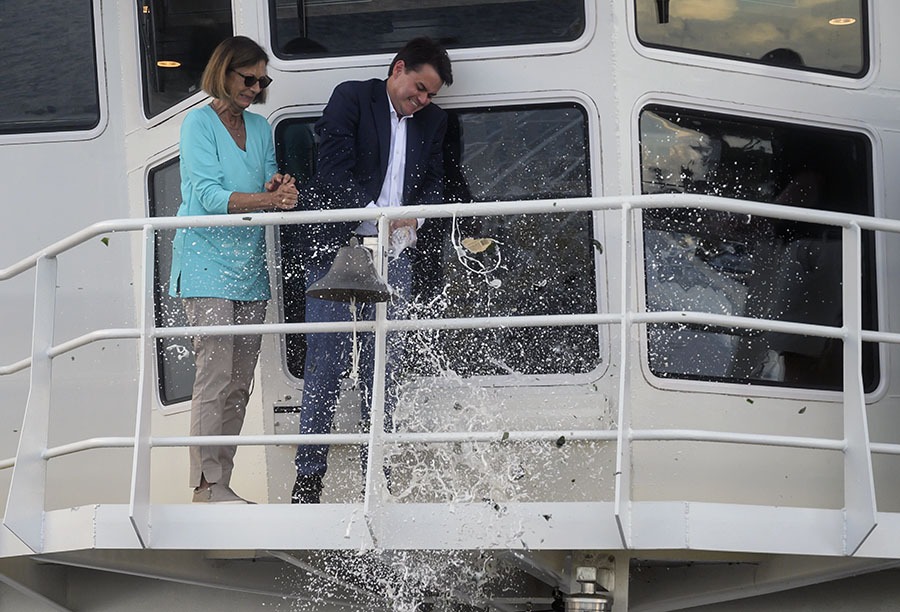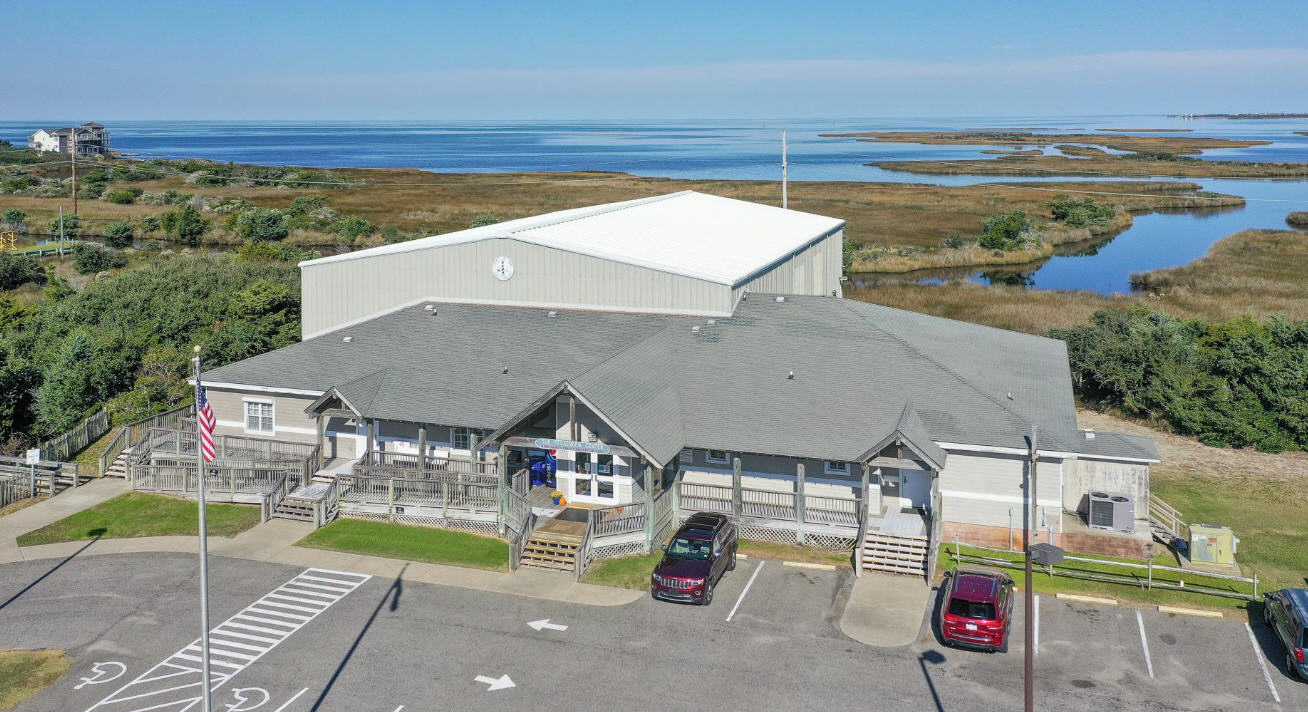Waterways Commission Considers the Future of Permitting, Dredge Disposal at January Meeting
Taking advantage of a lull in crisis mode, members of the Dare County Waterways Commission spent Tuesday’s quiet winter night planning proactive steps to stay ahead of issues looming this year in Hatteras Inlet.
“This is a good time for us to set the bar,” Chairman Dave May told the panel at its first meeting of 2018 in Manteo. “Where do we want to be?”
Dredging, surveying, permitting and financing of various projects all have to be anticipated and planned, commissioners agreed. Approval of a new disposal area for dredge material is critical, and communication between Hyde and Dare counties, as well as the state and federal governments, needs to better coordinated.
“Who’s going to be the symphony director?” asked member Danny Couch, who also represents Hatteras Island on the Dare County Board of Commissioners.
Although no answer was provided to Couch’s rhetorical question, the commission’s discussion touched on the frequent territorial headache over obtaining authorization for different projects that is likely to persist in the near term.
Other members in attendance were Dan Oden, Fletcher Willey, Ernie Foster and Steve “Creature” Coulter. Ron Lowe was absent.
Agencies that have authority over projects – and budgets – that impact Hatteras Inlet include the U.S Corps of Engineers, the National Park Service, the Coast Guard, the state Division of Marine Fisheries, the state Ferry Division, the state Department of Environmental Quality and the state Wildlife Resources Commission, among others.
One of the more aggravating situations to the Waterways Commission is that shoaling issues in different parts of the same channel have had to be addressed with different permits from different agencies and levels of government.
It’s even difficult for the Coast Guard to put their navigational aides in the proper location because of jurisdictional issues.
“The idea that we have a body of water and they dredge and we dredge and you dredge and we can’t dredge together,” Foster remarked, “it gets to be a little mind-boggling.”
Much of last year, for instance, was spent securing an agreement and funding between the state, the Corps and the county to do dredging in a small section of impassable channel that acquired the name Connecting Channel. Although the area was in the vicinity of the Corps’ federal project, the Corps would not be authorized to work in the Connecting Channel without the agreement.
But May, emphasizing that “language is very, very important,” objected to the confusion the name has created.
“I don’t want it to be called the Connecting Channel anymore,” May said, referring to an area close to the Ocracoke ferry dock. “That’s the South Ferry Channel – we don’t need anybody’s … permission to get in there and dredge. That has been maintained by the state historically.”
The bottom line, he added, is that when it comes to end of March, “we can use whatever crumbs [of funds] we have left to dredge that.”
But Oden stressed that he believes that it is most important for the county be prepared to jump in when necessary.
“Now’s the time for us to be proactive and make those plans,” he said. “When the southwest winds start to act up, we’re ready.”
Members also expressed considerable concern about needing more room to place dredge material. After the Corps completes its maintenance dredging of Rollinson Channel that is scheduled to begin on Feb. 21, the disposal capacity on Cora June Island, a bird island located near the Hatteras docks, will be at maximum level. Meanwhile, the Wildlife Commission is working to approve reconstruction of so-called DOT Island, a dredge island near Hatteras dock that used to be five times its current size. If permitted, new dredge material could placed up to 25 acres. The agency is also evaluating whether additional material can be deposited on Cora June.
Foster wanted to know “who is cracking a whip” to speed up the process, because without a disposal site, dredging projects can be held up.
“It’s something we need to be on because if we have another shoaling incident, we’ll be out of business for another year,” he said. “We need someone in an official capacity with the county to have absolute clarity on what is happening.”
An additional worry, Coulter said, is that the mouth of Sloop Channel, the part of the current horseshoe-shaped ferry channel near Ocracoke, is needing attention. The area has become more difficult for both ferries and charter boats to navigate.
“It’s gotten worse,” he said. “It’s narrowed up and it’s going to be a problem for everyone.”
Lance Winslow, environmental supervisor with the Ferry Division’s marine maintenance unit, told commissioners that a survey is currently being done by the state of the “Horseshoe Channel,” which is the first in three years. The findings will be presented at the Ocracoke Waterways Commission meeting on Jan. 29, he said.
The Sloop Channel work would be included in the state’s major CAMA permit, said Catherine Peele, Ferry Division environmental specialist. Still, the dredge spoil has to go somewhere.
“So we’ve got everything we need, but we just don’t have what we need,” said Coulter.
Coulter encouraged the waterways commission to work on improved collaboration, whether with the Federal or State governments.
“We’ve got to mash all the permits into one . . . It’s in everybody’s best interest,” he said, adding: “There’s no one in this room who doesn’t know what needs to be done.”
Although Couch reminded his fellow members that a lot was accomplished last year, especially in securing the agreement and funding for the county dredge project, May couldn’t help splashing on some cold reality.
Recounting a time years ago when he joined other commission members on a trip to Washington, D.C., May described a lesson in politics.
“We went up there thinking we were going to educate them about what’s going on down here, and I was shocked that they knew exactly what was going on,” he said. “I was thinking, ‘If you knew, why hasn’t anything changed? Why aren’t you doing anything about it?’”
The next Waterways Commission meeting will be held at 7 p.m in Buxton on Feb. 13. Commission administrator Jenny Gray Jones said that member Chuck Easley had notified her that he has resigned from the commission. It will up to the Board of Commissioners to appoint another member, or to allow the commission to go back to its traditional seven members.
In a surprise announcement, Jones also said that she would only be overseeing the next two meetings. After 24 years of service with the county – 17 of them with the Waterways Commission – Jones said she is retiring in March.












